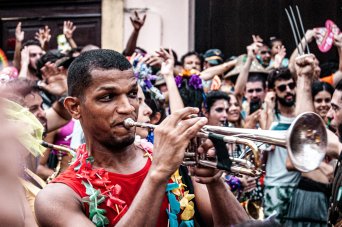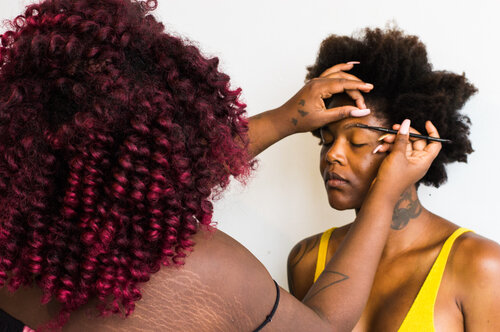- About
- Topics
- Picks
- Audio
- Story
- In-Depth
- Opinion
- News
- Donate
- Signup for our newsletterOur Editors' Best Picks.Send
Read, Debate: Engage.
| topic: | Racism |
|---|---|
| located: | Brazil |
| editor: | Ellen Nemitz |
While many parts of the world celebrate black heritage in February, Brazil commemorates Black Consciousness Day on 20 November in memory of Zumbi dos Palmares - a leader of the slave liberation movement from almost 200 years before the official abolition in 1888. Today, the racism that nevertheless continues to be an open wound in society is battled by social campaigns, like the Black Lives Matter movement, while in tandem, art and technology are used to express the silenced voices of black people in Brazil.
On 18 and 19 November, the northeastern city of Salvador held the fourth edition of the Afrofuturism Festival, with the theme of pursuing economic abolition - that is, truly empowering black populations for technology, entrepreneurship and innovation positions. The event, which was open to the international community through a hybrid format, brought up diverse discussions ranging from opportunities for black people in the tech market to the impact of algorithms on their lives.
Anti-racism and afro-culture also found space on the stage. For instance, "Negro Não Nego" (loosely translated to "Black, not denying it") takes some of the daily insults and violences to which black people are exposed - from the hypersexualisation of the black woman, to the high rates of homicides victimising this population - in an effort to reaffirm their identity and ancestrality. Similarly, the performance of A Menina Akili (The Girl Akili), deeply hits the public with its sharp language, making non-black viewers reevaluate their own hidden racism, while musically showing infants the importance of ancestrality and self-recognition as black since childhood.
These are, of course, just a very few examples of so many theater plays, movies, podcasts, music shows, books and other pieces of art which have the power of both representing a meaningful portrait of black people in Brazil and helping fight structural racism. Together with initiatives to put black workers and entrepreneurs on the top of decision-making and creation spaces, Brazil may build a future where black people thrive.
"May we commit to overcoming the hard process of change (...) [because] there is chaos, and we need to go through it for the future to come to us," invites Morena Mariah, communication strategist and pedagogical coordinator focused on learning in media and technology for young black people and from popular spaces.
Photo by Ferran Feixas

